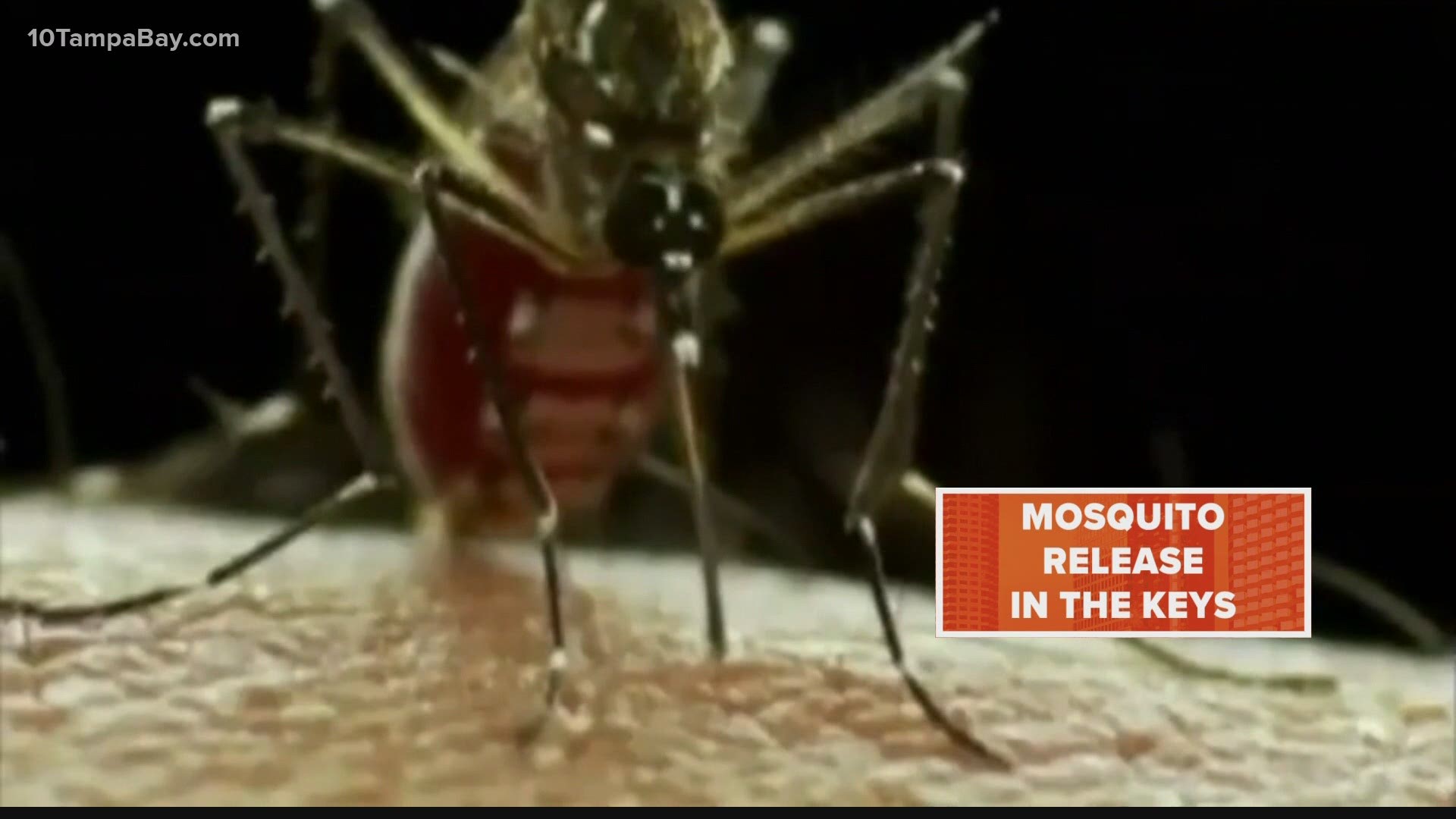A handful of boxes filled with thousands of genetically modified mosquitoes will be scattered throughout the Florida Keys this week, as scientists try to find ways to combat the insect's ability to transmit diseases.
Female Aedes aegypti mosquitoes are known for being the main transmitters of several viral diseases, like dengue and Zika. The genetically modified non-biting male mosquitoes will breed with females in hopes that their offspring won't survive.
The project has been years in the making. In 2016, nearly 60 percent of Keys voters approved a referendum that allowed for the mosquito release to happen. However, there was still pushback.
After months of testing and approvals from the Environmental Protection Agency and Florida's Department of Agriculture and Consumer Services, the UK-based biotech company Oxitec was given the OK to move forward with its first trial last year.
According to Oxitec, the Aedes aegypti mosquito makes up just four percent of the mosquito population in the Florida Keys, but it's responsible for nearly all mosquito-borne diseases that are transmitted to humans.
The company says almost 12,000 mosquitoes will be released each week over the next three months.
What other people are reading right now:
- CDC relaxes guidelines for wearing masks outdoors
- Turnout low as Johnson & Johnson vaccine returns in Florida
- Biden to sign $15 minimum wage for federal contract workers
- Investigation: Derek Chauvin held a teenager down prone for 17 minutes
- Former Bucs, FSU linebacker Geno Hayes dies at 33
- Pandemic creates a plethora of mental health jobs
►Breaking news and weather alerts: Get the free 10 Tampa Bay app
►Stay In the Know! Sign up now for the Brightside Blend Newsletter

